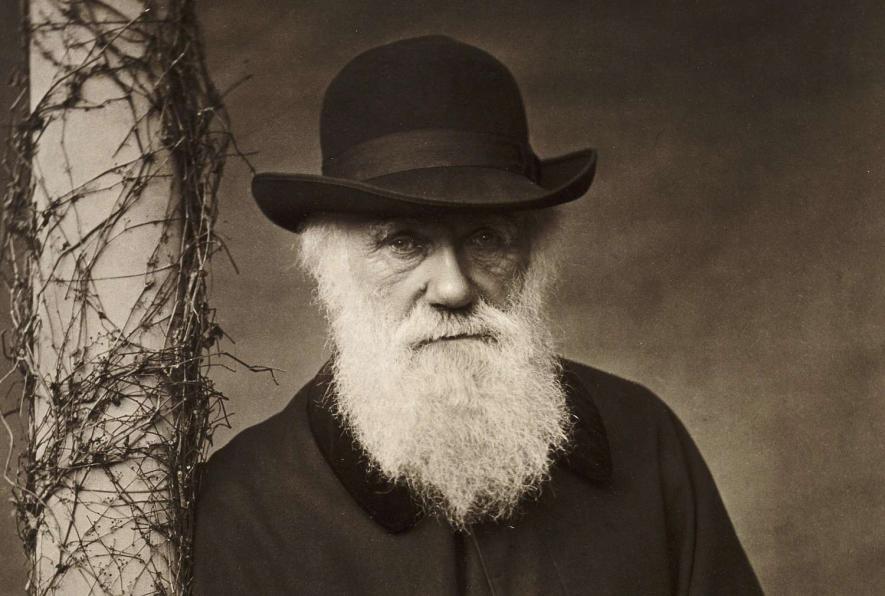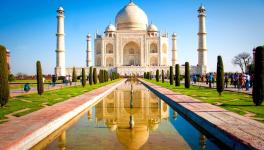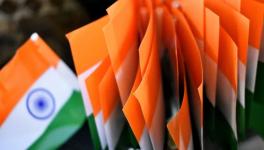Hindutva’s Killing Fields: Science is Latest Target in Textbook Revisions

Image for representational purpose. Credit: ThoughtCo
In 2018, during the previous tenure of the Bharatiya Janata Party-led government, Minister of State for the Ministry of Human Resources Development (now renamed Education Ministry) Satya Pal Singh told Parliament, no less, that Charles Darwin’s theory of evolution was “scientifically wrong,” since humans have always existed on earth as humans, and since “nobody saw an ape turn into a man.” He also said school and college curricula should be suitably changed.
The Minister was lambasted by scientists and in the press, but remained unfazed and repeated similar statements over time. Today, the MP is perhaps smiling contentedly, his wish having come true.
Read Also: Why Science Scares the RSS/BJP: Curious Case of Satyapal Singh
In previous weeks, there has been wide press coverage and commentary, both in India and abroad, of changes made in NCERT textbooks for middle- and high-school, particularly in history and political science, reflecting deep-seated biases of the ruling party and its ideological, socio-cultural and political partners.
Scholars and commentators have lambasted the deletion of entire chapters relating to rule by Mughals and other Muslim dynasties, omitting linkages of Right-wing Hindutva forces with Gandhi’s assassination, re-writing the story of the early decades of independent India, whitewashing the Gujarat riots etc.
Critics have noted that, while NCERT, and government and ruling party spokespersons, have all hidden behind the fig leaf of “rationalisation” of syllabi due to the Covid pandemic and to reduce the burden on students, all the changes made, align with the communal and revisionist ideology of the ruling establishment.
However, bar a few notable commentaries, similar deletions and changes in science and mathematics textbooks have not received due attention. These changes are no less pernicious, even if they are not so striking, and their social-ideological implications not so obvious.
Darwin, Evolution and Hindutva
Material on evolution has been removed from Class 9 and 10 science textbooks, and the earlier chapter on Evolution and Heredity in Classes 11 and 12 has been changed to one just on Heredity, and even a box on Darwin has been eliminated. So, what is the Hindutva objection to the Darwinian theory of evolution and what is the global context?
Over the centuries, religious orthodoxy in several cultural-theological traditions with significant societal influence, have struggled with Darwin’s theory of evolution, propounded in the mid-19th century. Christian orthodoxy in the West could not accept the Darwinian theory of evolution which postulated that all organisms evolved over time in response to their environment, and that humans too evolved from ape-like bipeds to different kinds of hominids to homo sapiens.
Despite much proof over many decades, religious orthodoxy could not deal with the challenge posed by the theory of evolution to ideas of “creationism” and literal interpretation of religious texts. The Biblical idea that god created all living creatures at the same time, and especially that god created man “in his own image,” clearly required that the Darwinian theory of evolution be rejected and denied.
Whereas Europe has found a way to view Biblical creationism in a non-literal theological sense and thus avoid most conflicts in school, university and scientific research systems, the US today remains a hotbed of conflict on this issue, especially in States dominated by far-right Republicans and conservative evangelicals. Battles continue to be fought on whether Darwinian evolution should be taught in schools, including many court cases.
Despite literal interpretations of Islamic texts in parts of West Asia, evolution had so far not emerged as a prominent theatre of conflict. Turkey, however, which is undergoing deep socio-cultural changes and a resurgence of orthodoxy after a long period of secular modernism under Kemal Ataturk, banned the teaching of evolution from curricula at all levels, claiming that it is controversial and just another opinion.
Historically, there has never been such a debate between Hindu religious orthodoxy and the theory of evolution, primarily because there has never been an orthodox view of creationism to be taken literally. That is, till Hindutva came along, and decided to confront evolution based on its own interpretation of mythology and legends, once again confirming that Hindutva is a socio-cultural-political movement rather than a religious one.
Votaries of Hindutva have posited the Dashavatara legend of the 10 avatars of god Vishnu, as the “Hindu” view of evolution. Vishnu is said to have descended to earth in these different avatars in order to restore the cosmic order, first as matsya or fish, kurma or tortoise, varaha or boar, narasimha or half-man-half-lion, vamana or dwarf-god, parasurama or warrior-god and Krishna, the transcendent man-god. In most Puranic literature, these avatars are interpreted as 10 stages in ascending consciousness. However, Hindutva votaries have started interpreting it as a theory of evolution, and one more element of ancient Indian (read Vedic-Sanskritic Hindu) knowledge that preceded its Western counterparts and was superior to them.
In 2019, the Vice Chancellor of Andhra University, addressing the 106th Indian Science Congress, stated that the Dashavatar gave a better theory of evolution than Darwin, a view reiterated by a Vishwa Hindu Parishad official in a recent interview to Al Jazeera, where he said that “the theory of Darwin has limited the scope of religion and that, being in the bloodstream of Hindus, it must be taught in schools.”
But Hindutva appears to have no problems with heredity, only with evolution. Heredity can be used, as Hindutva forces are trying hard to do, to somehow reiterate the indigenous origin of Aryans, even arguing supposedly on the basis of genetics. Heredity suits notions of racial purity of some Indians, of the superiority of some castes, and nowadays, also the superiority and special properties of indigenous breeds of cattle!
The former Minister of HRD repeated his earlier claims in Parliament in 2019 that Darwin’s evolution theory was wrong, and that “it is our belief that we are descendents of sages (rishis).” DMK MP Kanimozhi retorted sharply to the many implicit notions of ethnic and caste superiority saying, “my ancestors are not rishis… [but] human beings, and they were shudras!”
The deletion of evolution is a great loss in more ways than one. As one expert on the textbook committee put it, evolution is a bedrock scientific concept and helps students place many concepts in a larger context. It is also an important way to “distinguish between ‘faith as a way of knowing,’ and ‘science as a way of knowing.’
Other Deletions in Science and Math
There are numerous other deletions and omissions in science and math. The Class 10 Science textbook, and Biology textbooks for Classes 11 and 12 now omit chapters or sections on reproduction, underlining the prudish attitude of Hindutva adherents toward sexual education and also toward normal interactions between the sexes in society.
Dropping of a proof of Pythagoras’ Theorem may also be seen as evidence of the Hindutvavadi antipathy to Pythagoras with numerous claims of prior knowledge of this theorem in ancient Indian mathematics, again a part of Hindutva attempts to claim superior and earlier knowledge in India compared with the West.
It is indeed strange that Hindutva is waging this struggle now against colonial ideas of being a superior civilisation, whereas numerous Indian scholars, intellectuals and political leaders were doing so for more than a century before Independence!
Many other deletions in mathematics and science are difficult to explain, such as omission of advanced algebra in higher classes, including where math is an optional specialised subject. Cumulatively, they seem to dilute students’ knowledge and capabilities in mathematics which is strange considering that mathematics is widely considered to be one of the leading strengths of Indian students in the contemporary world.
Ideologically-inspired deletions are also visible in omission of sections or chapters on environment, social movements in India, on the industrial revolution, and even on advertisements! But those we shall take up on another day.
The writer is with the Delhi Science Forum and All India Peoples Science Network. The views are personal.
Get the latest reports & analysis with people's perspective on Protests, movements & deep analytical videos, discussions of the current affairs in your Telegram app. Subscribe to NewsClick's Telegram channel & get Real-Time updates on stories, as they get published on our website.























